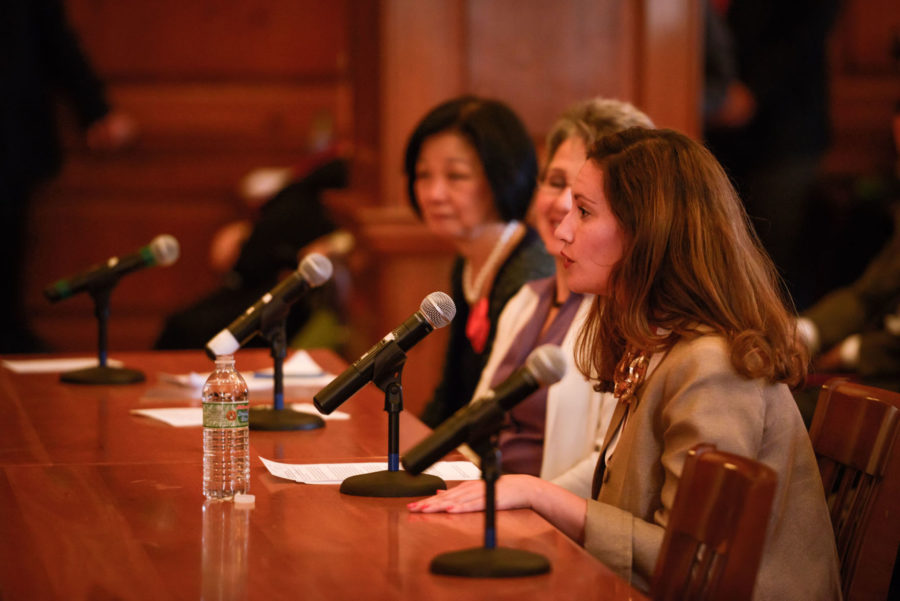Research Park director wary of higher education budget cuts
Chancellor Phyllis Wise, Vice Chancellor for Student Affairs Renee Romano and Research Park Director Laura Freirichs testify on University budget.
Mar 10, 2016
Last updated on July 17, 2016 at 01:45 p.m.
Laura Frerichs, director of the University’s Research Park, knows the importance of encouraging small businesses in a struggling economy.
Working to encourage technology companies and startups to develop, she could imagine the effects that the continued lack of a state budget could have on the caliber of services the park can offer to those companies.
“Our state is in a time of financial peril, and we know we need to grow our economy to increase revenue, create more jobs and strengthen our communities,” she said. “Promoting entrepreneurship has been a part of many city and state economic development strategies because small businesses fuel job growth and tech startups are some of the highest growth rate small companies.”
She said that decreases in faculty funding reduce the amount of research funding that the University is able to put back into innovation and that lack of funding for administration professionals “erodes” the bridge between technological innovation and the private sector.
Get The Daily Illini in your inbox!
Companies located at Research Park could start to feel the pinch as well.
Federico Zuckermann, founder and chief scientific officer of Aptimmune Biologics, Inc., said that he is still waiting to see the impact of lowered state funding on his company. “I haven’t seen the impact yet, but I’m sure it’s coming,” he said. “In the services they provide us, the support they provide us, I haven’t seen it yet.”
Conversely, Jacob Meyer, laboratory director at ATSP Innovations, said he doesn’t think state funding will have a large impact on his company due to the relative security of federal grants.
“Most of our funding has been through the federal government, at this point,” he said.
Frerichs gave a statement at the Illinois Coalition to Invest in Higher Education Champaign-Urbana Regional Press Conference Feb. 22, outlining the impact of the state budget on entrepreneurship and research at the University.
“We have 200 disclosures per year from this campus and the University of Illinois now ranks number 11 in the World for Universities Granting U.S. Patents according to The National Academy of Inventors,” she said. “The University of Illinois is one of the top 10 patent issuers in the state of Illinois, among Caterpillar, Motorola and Abbott as other powerhouses of scientific and technology discovery that drives our innovation economy.”
A future without state funding, though, could impact Research Park’s current standing, she said.
“Less funding diminishes our academic quality, which is critical for attracting the best and brightest students and faculty,” Frerichs said. “We need to continue [our] excellence to maintain our competitive advantage in startup funding, company partnerships and top workforce for the future of Illinois’ tech economy.”
Support for higher ed is support for Research Park, she said.
“State funding support for higher education is critical for our continued success.”






